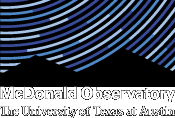Investment from UT Austin, Other Partners Accelerates Construction of Giant Magellan Telescope
AUSTIN, Texas — The Giant Magellan Telescope (GMT) is a next-generation optical/infrared telescope being developed in northern Chile that will yield important discoveries on topics such as galaxies in the early universe and Earth-sized planets orbiting nearby stars.
The University of Texas at Austin is investing an additional $45 million in the GMT, the world’s most powerful telescope. This additional funding brings the university’s total commitment to $110.3 million.

